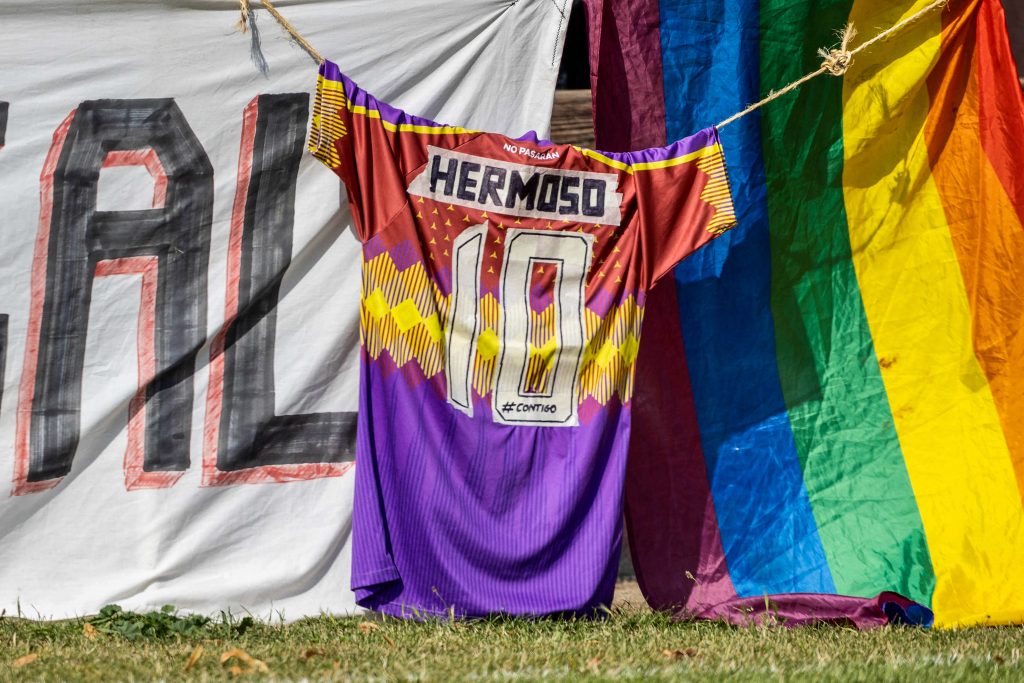On Sunday, Luis Rubiales finally resigned as the RFEF President and UEFA vice-president, 17 days after he non-consensually kissed Jenni Hermoso at the Women’s World Cup final.
The old guard of Spanish football appears, on the surface, to have fallen. This episode might be over, but we still have a long fight ahead to make football safe for all.
We continue to send our full solidarity and support to the Spanish women’s football team, who should feel rightfully vindicated after years of trying to fight entrenched power.
Their continued battle shows how hard it is to fight such power: getting the world’s attention by winning a World Cup, a FIFA suspension, a strike by 81 players, international public disgrace, a court case and more were not enough to push him.
What did push him? Maybe he feared the criminal court summons on charges brought by Hermoso of sexual assault and coercion. Or as his resignation statement suggests, by commercial pressure to protect the Spanish bid for the Men’s World Cup.
In any event, it took intense legal, political, and cultural pressure to break down the power he held and a fight to rebuild a safe environment for women in football in Spain begins now. Such power is held in teams, clubs and countries across the world.
The Zambian women’s team are fighting for the suspension of head coach Bruce Mwape, who sexually assaulted a player at a training session during this year’s Women’s World Cup. This is not the first allegation against him or previous Zambian coaches. He faces a FIFA investigation and ban, but if suspended will have an appeal right to the Court of Arbitration of Sport, and could well be reinstated if certain evidential thresholds are not met.
In Haiti, former women’s youth and national team players supported by a number of women’s and human rights groups continue the fight for the prosecution of former Haiti FA President Yves Jean-Bart, who is accused of sexually assaulting underage players and permitting the assault and abuse of players by his staff.
He is due to testify in re-opened proceedings in October. He was previously suspended for life by FIFA’s ethics committee but then reinstated after a ruling by the Court of Arbitration of Sport which decided that “none of the testimonies…were sufficiently precise and convincing to establish guilt”. He now has the declared support of 20 men’s Haitian football clubs.
Up against entrenched power, toxic fraternity and arbitrary rulings, the brave victims have a fight on their hands. We extend our full support and solidarity to the Zambia and Haiti women’s teams in their fight for justice and safety in football.
Here at home, the alleged victims of sexual assault and rape by Premier League footballers have been cast aside as clubs prioritise their image and financial interests over the safety and wellbeing of the victims.
English football has a dark history of failing to keep players safe: the Sheldon Report released in 2021 uncovered the extent of sexual abuse of children over many decades. Related inquiries run close to home for CCFC members.
Our coach and club welfare officer Ellie Guedalla sits on the FA Survivor Support and Safeguarding Advisory Group, ensuring a voice for survivors.
We at CCFC call for the safety and wellbeing of women to be put first. The organisation Women in Football are calling for an ‘Open Doors Agenda’ to make football fully gender inclusive. WIF members can sign the open letter here.
We have a collective responsibility as football fans, players and decent human beings to ensure that football is a safe space for all. CCFC will continue to speak out against abuse and injustice in all its form.
On the weekend of September 30 to October 1, join us as we’ll be supporting the FA Play Safe weekend to promote the shared responsibility that we have to protect children, young people and all players from all forms of abuse in football.
The struggle continues. La lucha continua. Solidarity.

